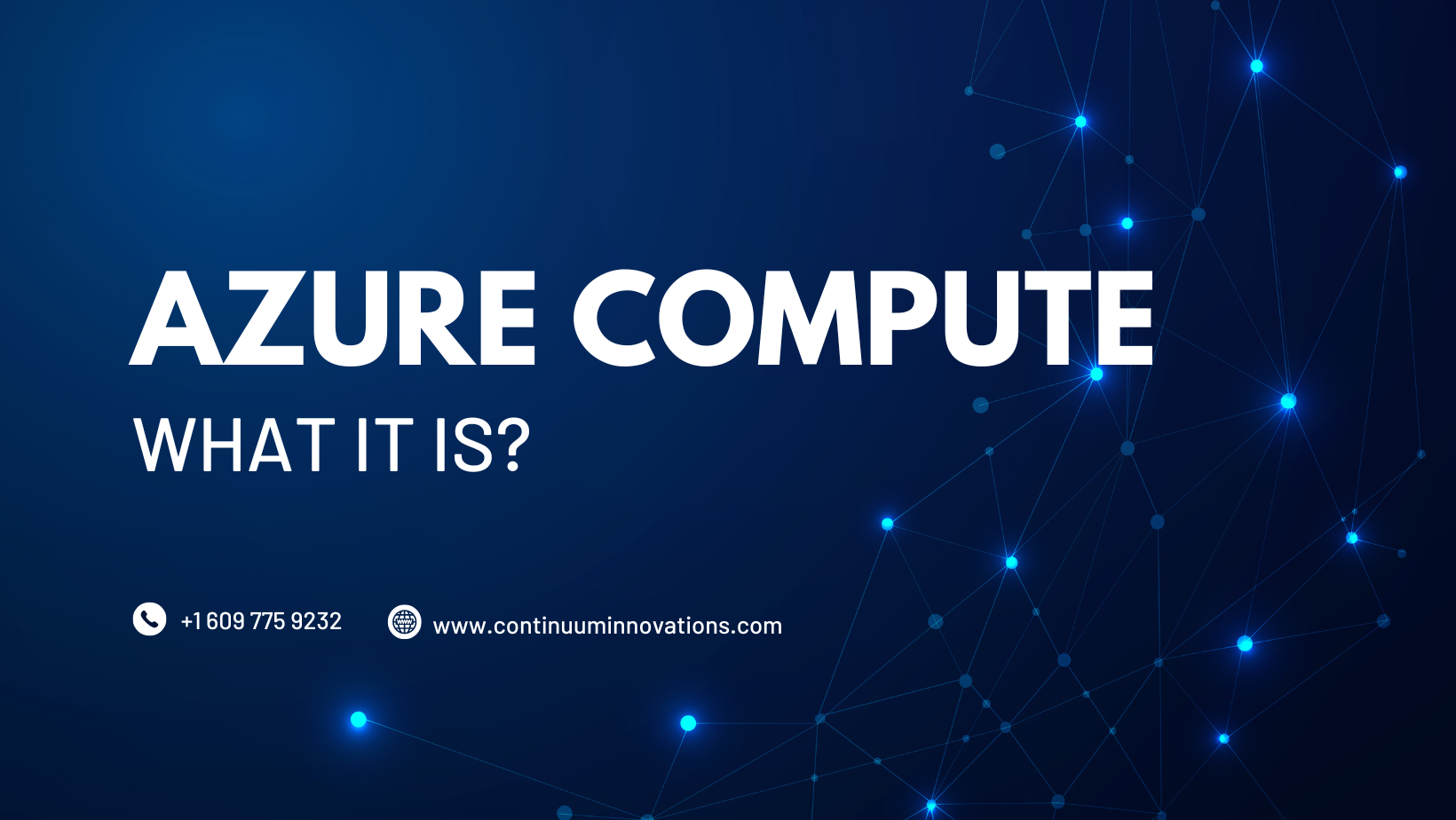Azure Compute: The Detailed Insights
What is Azure Compute
Azure Cloud Services:- Azure Compute provides the infrastructure needed to run these apps, whether your company is looking to create or deploy existing ones. Compute can use the capacity to scale on demand. Flexible options for migrating virtual machines to Azure are available. Deployment can be done however and wherever you want to, with all-encompassing support for hybrid environments. Azure Compute also includes an identity solution to use gain-managed end-protection. Active Directory support is available for securing access to on-premises and cloud applications.
To sum up, Azure Compute provides an on-demand computing service to run cloud-based applications of all types. Computing resources, storage operating systems, memory, processors and networking are all provided by Azure Compute. Resources are available through Azure to compute and can be set up within minutes. The payment module is designed with a pay-as-you-go feature and only for the time the resources are used.
Azure supports Linux, Windows Server, SAP, Oracle and SQL with various computing solutions dedicated to serving development, testing, running apps and extending data centers as per requirement. Virtual Machines can run with Azure with great ease, and each service can provide options as per need and demand. Let us have a detailed look at some of the services provided with Azure Compute.
- AZURE APP SERVICE: Azure App Services enable the building and deployment of enterprise-grade applications for the web and mobile. These applications can easily scale with compliant requirements, and security and performance are assured on the Azure Platform with its comprehensive infrastructure. The Azure App Service falls under the Platform as a Service (PaaS) umbrella.
- AZURE CONTAINER INSTANCES: Azure Container Instances manage and deploy the key Azure Compute Resources containers. Containers can be defined as a unit of software that can be executed where the application codes are packaged with needed dependencies and libraries so that they can be run wherever needed on the cloud or on-premise services.
- AZURE VIRTUAL MACHINES: A virtual machine is an emulation or the replication of an entire computer system. The VMs perform like a physical computer altogether. VMware is software that has been enabled on virtual machines since 1998. To meet the needs of organizations to set up databases and increase computer power from virtual machines, Azure Portal gives browser-based easy-to-use platforms to create and use VMs in Azure. With cloud computing like Azure, it has never been easier to deploy various versions of the same VMs to improve load handling. It is more flexible than having to handle a physical server or installing an OS on our own.
Virtual Machine Scale Sets
Large-scale services needing large amounts of computation, big data volume and containerized workloads are easy to build with the virtual machine scale set capabilities. One can use Virtual Machine Scale Sets to utilize and manage a set of identical VMs, the Azure Compute Resource. True auto scale is compatible as all the Virtual machines are configured almost the same way, and the virtual machine scale sets are designed to support the same. VM instances can be added as the demand escalates, and instances can be removed as the demand falls. These processes can be manual, automated or a combination of both.
When are Azure Virtual Machines Used?
As stated above, Azure VMs allow the creation and usage of virtual machines in the cloud as an Infrastructure as a Service (IaaS). The Virtual Machines are ideal for usage in any of the following scenarios:
- When complete control is desired over the Operating System.
- When the software is to be run after being custom designed and developed.
- To use custom hosting configurations.
- AZURE FUNCTIONS: Azure compute Functions caters to the needs of companies when the developers and organizations focus on the code running the service and not on the underlying infrastructure or Platform. When any task needs to be executed in response to events such as a REST request or message from another Azure service and when work needs to be finished as fast as possible, the Azure Functions is an easy route.
Azure Function is an event-driven and server less platform that enables complex synchronization difficulties to be solved easily. Applications can be deployed and scaled flawlessly in the cloud with Azure functions. Building, debugging, and monitoring are possible thanks to the built-in DevOps features supported by Azure Functions. Depending on the volume of the workload, the infrastructure scales automatically. Some of the features of Azure Functions are event-driven scale, server abstraction, and micro-billing.
CONCLUSION
The above description of various Azure Computing services analyzes how Azure Compute works. As learned, Azure compute is extremely helpful in making applications function smoothly in the cloud or on-premises. The features and services offered by Azure Compute make it an indispensable part of the IT infrastructure of any organization.


